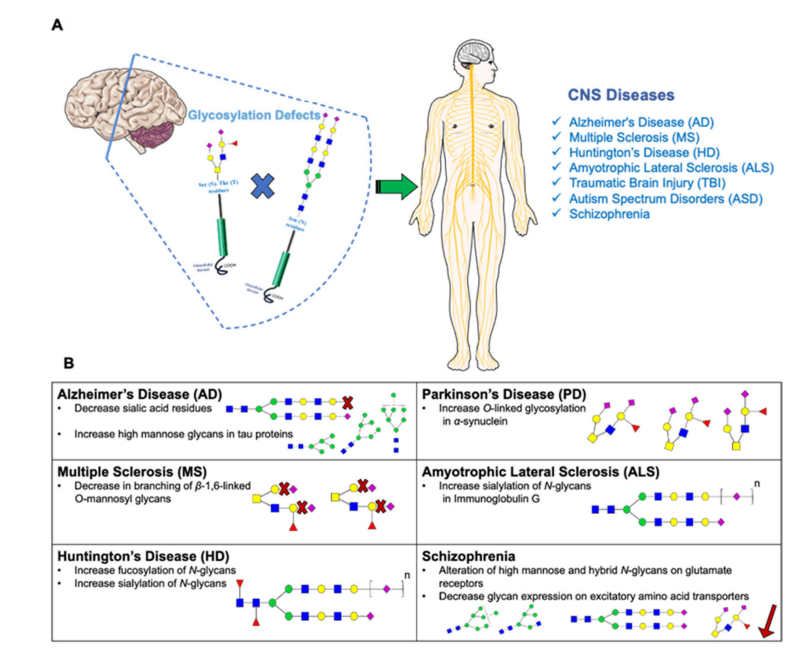Glycan in Disease
As a pioneer and the undisputed global leader in antibody discovery and manufacturing, Creative Biolabs has been concentrating on the glycans and related anti-glycan antibodies researches for many years. We are pleased to use our extensive experience and advanced platform to offer the best service and the most qualified products for global customers.
What are Glycans?
Glycan, also known as polysaccharide, is a polymeric compound composed of a large number of monosaccharide residues connected together via glycosidic linkages. In practice, glycan also can be referred to as the carbohydrate portion of glycoconjugates, such as glycoprotein, glycolipid, or a proteoglycan. In humans, glycan usually exists and functions in the forms of glycoconjugates by post-glycosylation modifications such as sulfation, phosphorylation, and acylation. Both glycans and glycoconjugates play fatal roles that are distinct from those of nucleic acids and proteins in a wide range of biological processes. Glycans binding to proteins or glycoproteins mainly involve folding, trafficking, stability, bioactivity, and half-life of active proteins; glycans on the cell surface can have an impact on transportation of carriers, binding of receptor and ligand, cell to cell interactions, and so forth.
 Fig.1 Correlation between glycosylation changes and CNS diseases.1, 2
Fig.1 Correlation between glycosylation changes and CNS diseases.1, 2
Glycans in Diseases
Due to critical functions and extensive involvement, abnormity of glycans either in structures or functions can result in a series of pathogenic processes and diseases.
Bacterial and viral infections refer specifically to invasions of the body by bacterial and viral microorganisms. The ability of glycan expressing and catabolizing of bacteria and viruses, as well as the glycans expressed on the host cell surfaces, are the determining factors of the interaction of these micro pathogens with hosts.
Parasitic infections are special infections caused by pathogenic parasites, which express glycans and glycan-binding proteins that differ from glycans in humans. Glycans of parasites can provoke both innate immune system and adaptive immune responses of the hosts.
The majority of acquired human diseases affected or caused by various factors and changes in both in vivo and in vitro. Among these factors, alteration in glycan structures, synthesis, and functions is closely related to acquired human diseases, such as cardiovascular diseases, immune diseases, cancers and so forth.
What Creative Biolabs Can Do About Glycans
Carbohydrates, particular glycans, are significant structural and functional molecules in humans, animals, plants as well as microorganisms. However, carbohydrates are also possible to be harmful substances to the body and cause disorders and diseases. Creative Biolabs is capable to provide a full range of services about glycans and related diseases researches based on well-constructed platforms. Moreover, we also have advantages in offering one-stop and custom services about related Anti-Glycan antibodies, which include but not limited to:
- Services of anti-glycan antibodies
- Applications of anti-glycan antibodies
- Anti-glycan antibodies products
- Related supports of anti-glycan antibodies
Just feel free to contact us for more detailed communications and information.
References:
- Kobeissy, Firas, et al. "Glycomic and glycoproteomic techniques in neurodegenerative disorders and neurotrauma: towards personalized markers." Cells 11.3 (2022): 581.
- Distributed under Open Access license CC BY 4.0, without modification.
